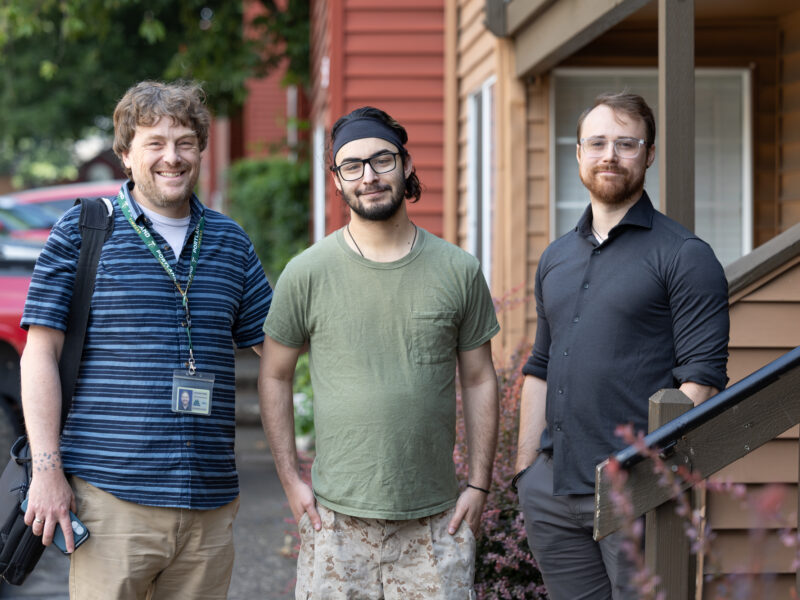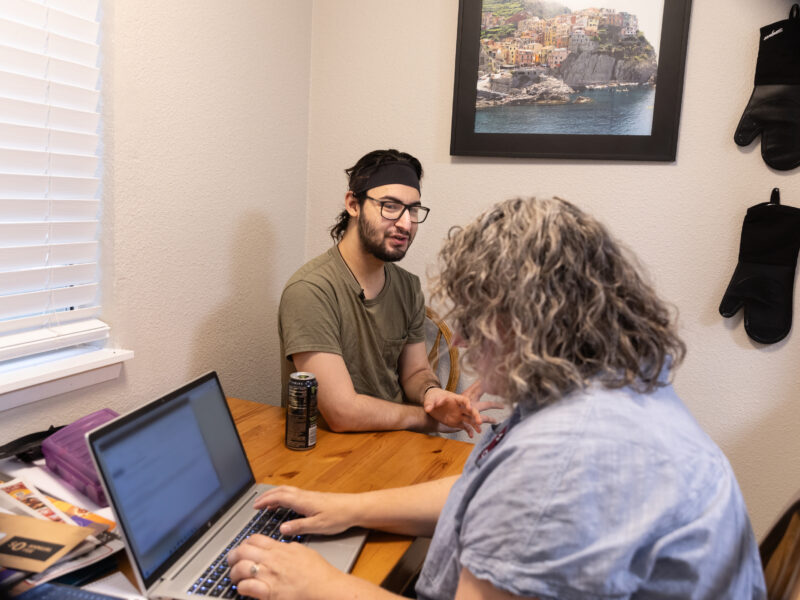Jayson's Story
'I'd still be in a tent... just trying to survive.'
Program connects people with intellectual and developmental disabilities to housing and support.
When Jayson first connected with the Multnomah County Intellectual and Developmental Disabilities Services Division’s Regional Long-Term Rent Assistance (I/DD RLRA) Program, he was homeless and staying in transitional housing. Before that, he had been living on the streets of Salem for about three years.
Born with cerebral palsy, Jayson has navigated challenges throughout his life. But he doesn’t consider the condition one of them. “I was born with it. It’s not something that I notice.”
However, among his experiences, he never expected to face homelessness.
“I fell into homelessness at age 20. It was nothing I ever intended,” he said.
Now 24, he says that if it weren’t for his Multnomah County case managers, personal support worker and his friends, he believes he’d “literally still [be] down in Salem, still in a tent, still freezing… still just trying to survive.”
Jayson’s story is far too familiar.
“People with intellectual and developmental disabilities are disproportionately likely to be at risk for, or become, houseless,” said Thacher Schmid, Jayson’s case manager from the Multnomah County Department of County Human Services. “And when they do become unhoused, people may not even notice their disability.”
Rent assistance program offers transformative support
Funded by the Supportive Housing Services measure, the Multnomah County I/DD RLRA program offers permanent supportive housing to households who are experiencing or have experienced long-term homelessness, and have an intellectual or developmental disability — that includes lifelong neurodivergent conditions like autism, cerebral palsy and epilepsy.
“Permanent supportive housing can be like a kind of magic,” said Schmid. “It brings together the power of housing first — a roof over one’s head, locking door, bathroom, kitchen, stability and safety — and the supportive services.”
Case managers like Schmid offer a combination of housing stability support and Intellectual and Developmental Disabilities support, which can include connection to coordinated attendant care agencies and job programs. Schmid and Jayson worked together to identify barriers, make plans to overcome them and get him into his current home.
When people are able to stabilize in housing, outcomes can improve across every part of their lives from housing to health, to being able to get a job to improvements in their family network.

Jayson looks to future
Today, Jason exercises and is working to increase his mobility. He attends social events and cooks with his personal support worker, Levi. He’s also looking forward to securing a job, as well as getting a dog.
“I feel very grateful to have had a chance to work with and know you because I think you’re an amazing person, very sweet, very strong,’” Schmid tells Jayson directly.
Jayson responds right back: “I technically probably wouldn’t even be in this situation, in this house, if we didn’t meet and if you didn’t push me in the right direction.”




